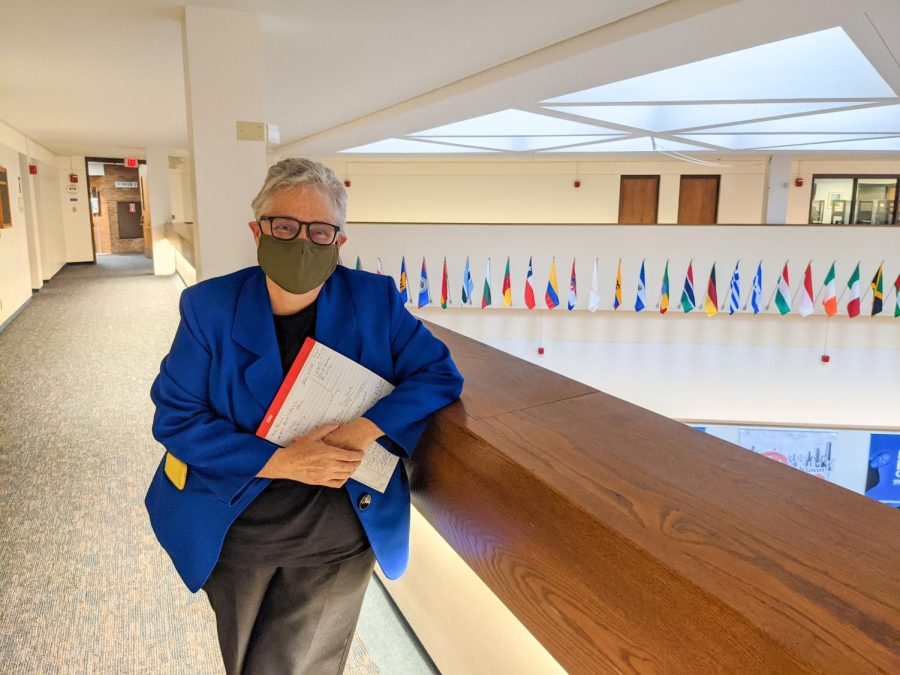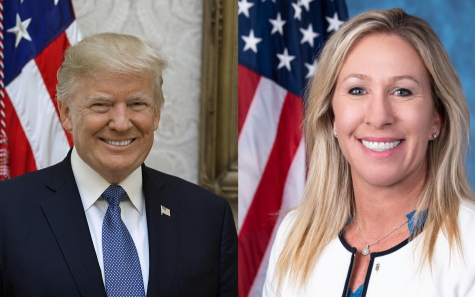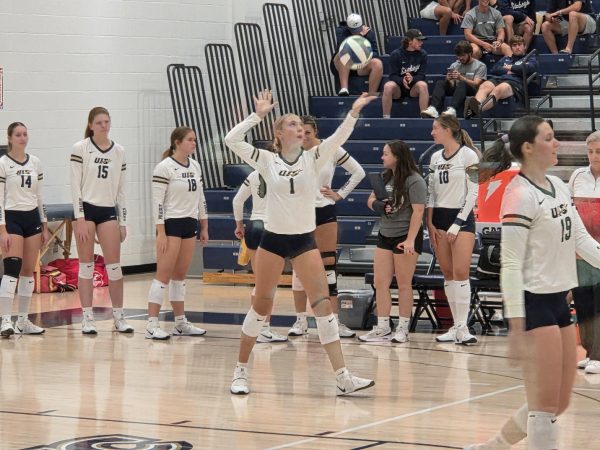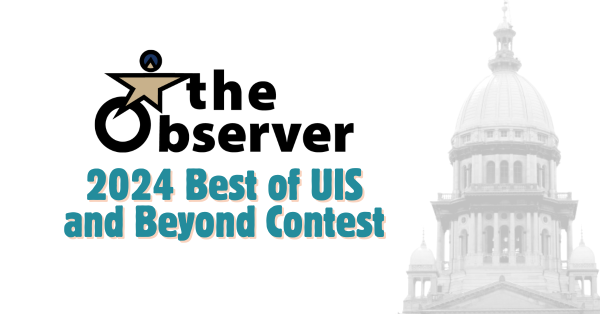Chancellor Thinks Union Negotiations are Productive, Union Reps Less Confident
UIS Chancellor Karen Whitney outside her fifth floor office in the Public Administration Building. | Photo Credit: Andrew Adams
Negotiators from the University of Illinois Springfield administration and its faculty union, UIS United Faculty, met on Friday to continue bargaining for a new faculty contract.
This is the 13th meeting of the two parties since the union and university began formal renegotiations in February 2021, when university administrators requested it. The faculty’s original contract expired on Aug. 16, though it remains in effect.
“I know that many would like to have this concluded as soon as possible and that includes me” said UIS Interim Chancellor Karen Whitney in an interview last Wednesday. Whitney is on the negotiation team for the university.
Shortly after the bargaining session, Whitney sent an email to students and faculty saying the two-and-a-half hour session was “productive.”
“I appreciate the effort by all parties to work toward closure in a timely and thoughtful manner,” Whitney said in that email.
But representatives of UIS United Faculty (UIS UF) were less confident in the progress being made.
“We don’t feel quite as positive,” said UIS UF President Kristi Barnwell, an Associate Professor of History here at UIS.
The teams discussed a pair of language proposals and reviewed a “comprehensive proposal” presented by the university administration, according to Barnwell.
“We were able to have discussions and clarifications over the proposals,” said Barnwell on Friday evening.
This session was the first to be held using a “traditional” bargaining style in which parties propose specific contract language and provide counteroffers. Prior to last week, negotiations used an “intentional bargaining” method, which focused more on discussions about core issues.
“The traditional framework is much more efficient and effective, given where we are in negotiations,” said Barnwell.
Stephen Schnebly, Associate Professor of Criminology and Vice President of UIS UF, said that intentional bargaining is a good idea, but has a risk of being ineffective due to its focus on ideas, rather than language.
“It’s one where you have a lot of latitude,” Schnebly said. “It’s not always the most fruitful approach.”
Schnebly, who is not on the negotiating team for the union, said he is not happy with the progress made so far. (Schnebly had not been briefed on Friday’s bargaining session when he spoke with The Journal.
“My dissatisfaction comes from the fact that I was part of the union the first time,” he said, referring to the union’s formation and first contract negotiation in 2015. Schnebly characterized the university’s behavior as intentionally slow.
“We’re starting to see spectres of that original behavior,” he said.
Whitney said that she intends for the discussions to be productive and is hopeful for a quick and satisfying resolution to negotiations.
“I think our employees deserve to be paid more. That’s not the challenge for me,” said Whitney. “The challenge for me is: how do we do it?”
The last time UIS UF negotiated contracts, it took more than a year and a half and involved a four day strike in 2017. When asked about the possibility of a strike during this process, Whitney stressed she would like to avoid it.
“What we’re doing – in no way do I want this to touch the lives of students,” she said.
Representatives from UIS UF said that students concerned about a possible strike should have faith in the faculty’s negotiation.
“We’re taking it week by week, month by month, meeting by meeting,” said Schnebly. “We’re fully committed to negotiating.”
“Students should know that their faculty, their professors always have student learning conditions in mind when we decide what to negotiate for,” said Barnwell. “Our working conditions are student learning conditions.”
UIS UF is formally known as University Professionals of Illinois Local 7100 and is affiliated with the Illinois Federation of Teachers and American Federation of Teachers. It is one of nine unions on campus. AFSCME, FOP, IATSE, IUOE, and four other unions organized under UPI.











